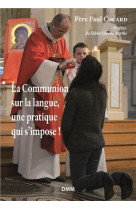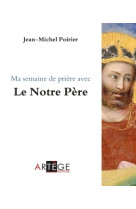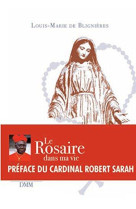--
‘When the Gospel becomes a doctrine, it ceases to be a source of life and can turn into a death principle.' That statement from the philosopher Eric Voegelin describes, in just one sentence, the sort of degeneration this book discusses. The author traces, century after century, the drift that has, little by little, seen the substitution of truths that have been established as doctrines for the ‘believe in others' principle lived by Jesus Christ. We can see how that drifting, after a number of centuries, produced wars of religion and cruel persecution. We can see why Christianity was unable to put a stop to great wars, between nations or ideological groups, wars that devastated Europe, then the world - although they began in a reputedly Christian Europe. All of which obliges us to rethink the principle of Christian belief, and to see it for what it truly is: one that engages the entire human being, his intelligence of course, but also his will and affectivity. In regard to the latter two aspects, even if theologians have paid little attention to them, the principle of Christian belief has never ceased to be practiced among believers, since Saint Martin and Saint Francis of Assisi to Saint Vincent de Paul and Abbé Pierre. Pope John XXIII had this intuition when he fixed the objective for Vatican II as a pastoral council, rather than a dogmatic one. Isn't this the objective that Christianity should set itself, if it hopes to gain the respect of so many men of good will for whom it is not just another ideology? Born in 1921, Marie-Abdon Santaner studied philosophy, theology and the classics and taught in Bayonne before entering the Capuchin Order. Provincial of the Capuchin of Toulouse for three years, he went on to accomplish a ministry of training and retreats in France and abroad. As a theologian, he worked in the service of the Centre national des vocations, then the Episcopal Council for the training of laymen in the diocese of Évry.








